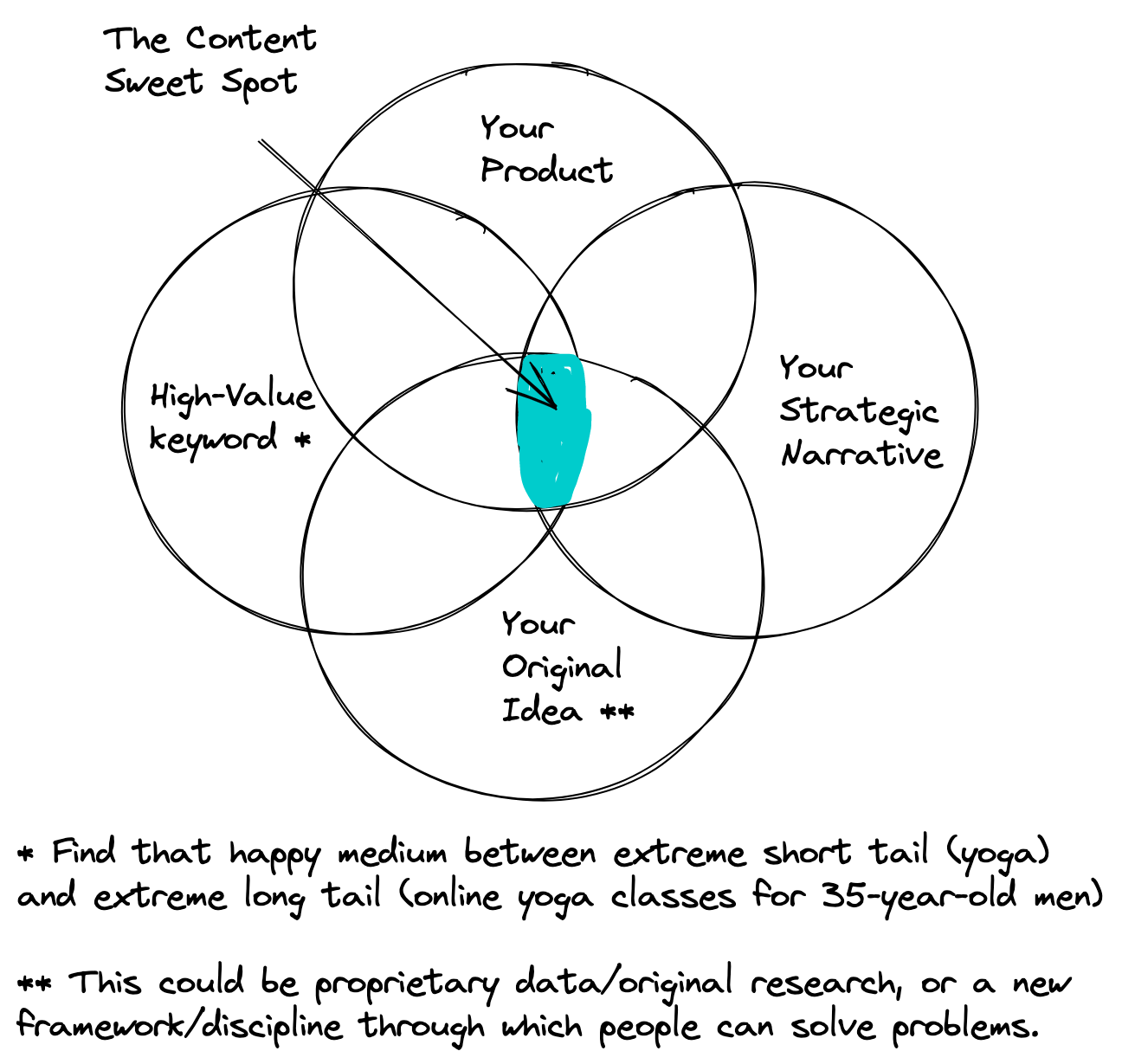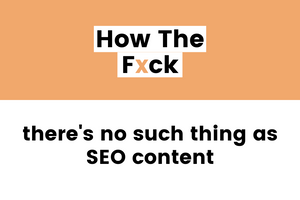This past week I began writing an article on upselling.
You may or may not have noticed, but I’m not a salesperson, account manager, or customer success dude.
So, what can I bring to the table?
✨ pretty good research skillz ✨
As a content creator, you can actually bring more to the table than someone who has been-there-done-that themselves.
Don't underestimate the humility of the writer with little to no knowledge. You're open to ideas, more willing to draw inspiration from new sources, and more able to draw new conclusions from the data you find.
But, first, you need to do good research.
Most B2B blog writers head over to Google as their first port of call. That’s an important first step because it:
- tells you what’s ranking at the moment, there might be some sections you want to use, too.
- it gives you a basic understanding of the subject matter.
And, let's face it, in the current state of Google, it is going to be Basic with a capital B.
The worst thing you can do, therefore, is to stop there and summarize what everyone else has said (aka the ‘skyscraper’ technique).
Being the higher word count blog post that says everything everyone else said is the most basic value add you can bring to the search results.
Also, if everyone is doing it then are we planning to just get longer and longer and longer blog posts?
Ain’t nobody got time for dat!

Regardless, it’s not a long-term strategy for beating the competition. We are playing the LONG game here people. Stacked, compounding, sustainable growth.
Do you know how to play the long game in content?
That relies on you developing your natural-born creativity (stahp! everyone has it) and building a solid research process.
This course can help with that creativity part (how DOPE does that look btw?! No affiliation).
I can help with that second part. 👇
Three research activities that radically improve your content
First up, I recently wrote this topic up on my LinkedIn/Twitter. So here it is in a nutshell before I expand on some of the points below.








For my article on upselling, I started with three research activities to make sure I could add value to this piece, even to an expert, when I'm not an expert.
Here are those three things:
1. Watch a few YouTube videos on the topic
For a content writer, boy do I hate reading. I like things to be piped into my brain as much as the next millennial.
YouTube is a great place to do research for another reason: it’s likely not already being used in other articles, so you’ve found a fresh source to draw from.
2. Find quality eBooks on the topic
Super long-form content like eBooks usually have more work put into them.
Ie. they’re a deeper source of insights.
Head to Google and type in “topic” + “filetype:PDF” to pull up any PDFs written on that subject. If you’re lucky you’ll find some funky presentations or whole actual books.
Rewrite and reformat the content from your perspective and relate it back to the narrative/angle you’ve chosen.
3. Speak to a subject matter expert
I wanted my upselling article to fulfill a few purposes. I wrote this down at the top of my page:
This article should be useful to our existing customers; attract new customers; and rank in Google.
To do that, I wanted an original, experience-based perspective on the topic.
I was lucky enough to have an expert at hand, so I sat down with the director of customer success at my company for 20 minutes.
I asked him three things:
- How does your team do this now?
- How do you plan to do this in the future? (what’s the best practice for this?)
- How do our customers use our product to do this?
We had a rare sweet spot here. Our product helps with upselling, so we coach our customers on how to use it to upsell (expertise ✅) and we also use our own product to upsell (expertise & stories to tell ✅).
Since we have a lot of internal expertise on the subject, I could easily look inwards for guidance and quotes that make this article 10x better.
However, if you don’t have internal experts, there are plenty of people who will chat with you.
Let them know that for 15 minutes of their time you'll credit them as an expert and link to their site. Easy win—trust me, it works.
If it doesn't work, I hear bribery works. Also, I've suddenly got 15 minutes free right now.
SEO content can be GOOD!
In her FANTASTIC newsletter this week, Erin Balsa shared her view on the 'content sweet spot'.

This reiterates a key point I try to get across in all my content.
People seem intent on treating these as separate things completely:
- SEO content
- Thought leadership content
- Product-led content
SEO is simply a distribution channel at its core. It's a way for people to find your content in the moment they need it (which IMO makes it the best distribution channel of all time).
Don't set out to write "SEO content" or "thought leadership content." Set out to write the best content on the internet.—Erin Balsa
The content the searcher finds should be designed to rank, yes, but primarily it should convey your unique perspective, your originality, and, at times, your product, or it'll never be memorable, engaging, or high-converting.
Thanks for reading! Have a great rest of the week 👋
PS. If you don't already, subscribe to my newsletter to get thoughts, frameworks, and case studies each week.


